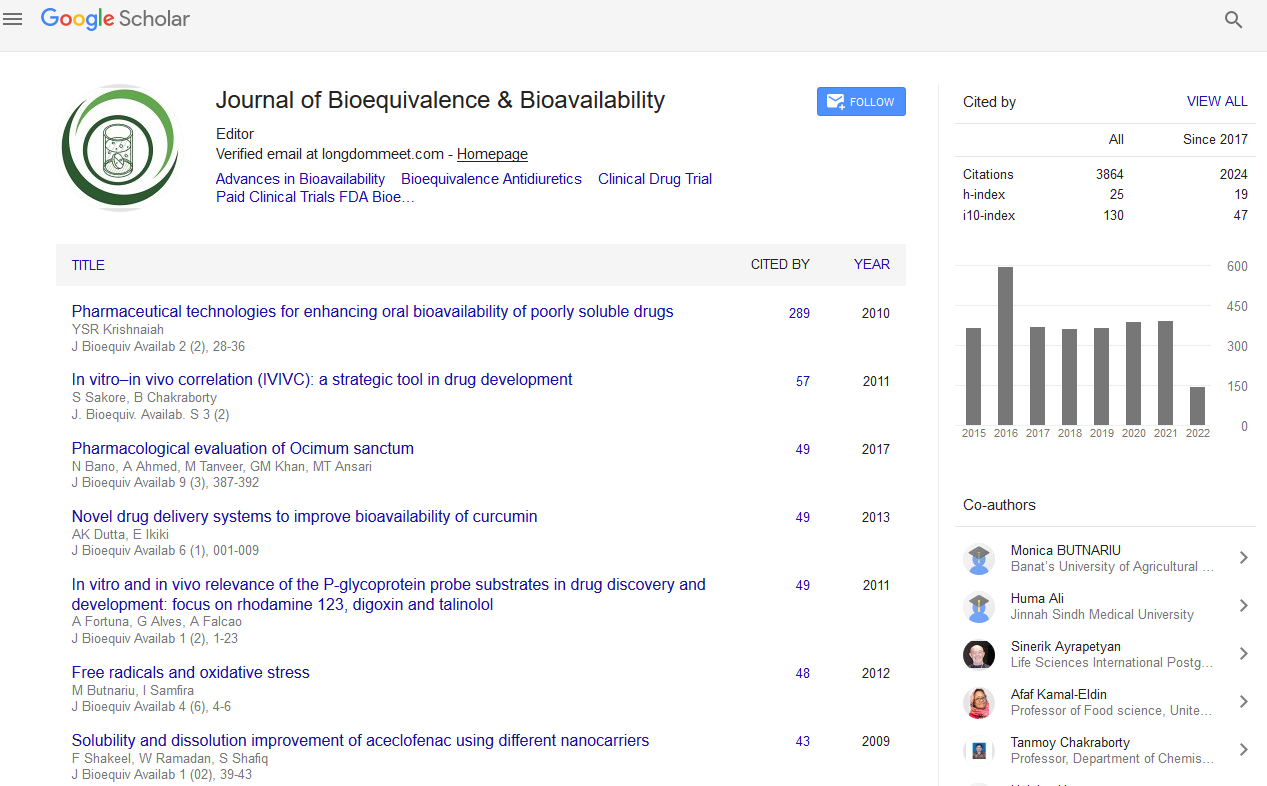PMC/PubMed Indexed Articles
Indexed In
- Academic Journals Database
- Open J Gate
- Genamics JournalSeek
- Academic Keys
- JournalTOCs
- China National Knowledge Infrastructure (CNKI)
- CiteFactor
- Scimago
- Ulrich's Periodicals Directory
- Electronic Journals Library
- RefSeek
- Hamdard University
- EBSCO A-Z
- OCLC- WorldCat
- SWB online catalog
- Virtual Library of Biology (vifabio)
- Publons
- MIAR
- University Grants Commission
- Geneva Foundation for Medical Education and Research
- Euro Pub
- Google Scholar
Useful Links
Share This Page
Journal Flyer

Open Access Journals
- Agri and Aquaculture
- Biochemistry
- Bioinformatics & Systems Biology
- Business & Management
- Chemistry
- Clinical Sciences
- Engineering
- Food & Nutrition
- General Science
- Genetics & Molecular Biology
- Immunology & Microbiology
- Medical Sciences
- Neuroscience & Psychology
- Nursing & Health Care
- Pharmaceutical Sciences
Production of biosimilar protein-based drugs in plant bioreactors
International Conference and Exhibition on Biowaivers & Biosimilars
September 10-12, 2012 Hilton San Antonio Airport, USA
Michael D. McLean
Keynote: J Bioequiv Availab
Abstract:
An overview of plant-based therapeutic protein production will be presented. Biologic drugs are typically produced in mammalian cell bioreactors; however, these systems are associated with high production costs as well as time-consuming cell culture and scale-up processes. In an attempt to meet rising market demands, pharmaceutical companies are working to improve the efficiency of existing biopharmaceutical production systems and to increase the number of production facilities. In spite of these efforts, the pharmaceutical industry may not be able to meet consumer demands as biosimilars begin to make market entries. Therefore, alternative expression systems and processes for the production of biologic drugs are being developed. ?Biopharming,? or the agricultural production of therapeutic proteins is one alternative to traditional mammalian cell-based expression systems, as IgG antibodies were first successfully expressed in transgenic tobacco plants in 1989. Since then, a wide variety of genetically modified plant hosts have been used for recombinant therapeutic protein production. In comparison to mammalian systems, plant bioreactors offer many advantages for the pharmaceutical industry, including lower upstream production costs, speed of manufacturing, indefinite scalability and ease of handling. Plants also offer the advantage of biological safety, as there is no risk of contamination with zoonotic pathogens. Challenges for the production of protein-based drugs by plant bioreactors, including higher downstream processing and purification costs, and the requirement for modifying plant-specific post-translational glycosylations will also be discussed
Biography :
Michael D. McLean has worked with Dr. J. Christopher Hall for more than 10 years at the University of Guelph and has played a major role in the development of a system for the production of therapeutic antibodies and proteins in plants. This system has been adapted as a platform technology for antibody production by PlantForm Corporation. McLean has also worked on research topics such as antibody selection and development, antibody purification, antibody function and therapeutics, and bioremediation of environmental contaminants using plants engineered to express antibodies. Together, Hall and McLean have published over 20 papers, 3 patents, and raised over $5M for their academic research programs. Before working with Hall, McLean taught genetic engineering in the Molecular Biology department at Guelph and performed research on crop protection. Prior to that, he was a research fellow at the Children?s Hospital of Eastern Ontario in Ottawa on a team that identified a gene associated with human spinal muscular atrophy (SMA). McLean earned his Ph.D. at the University of Georgia in the area of plant genomics and has worked in biotechnology for more than 20 years.


